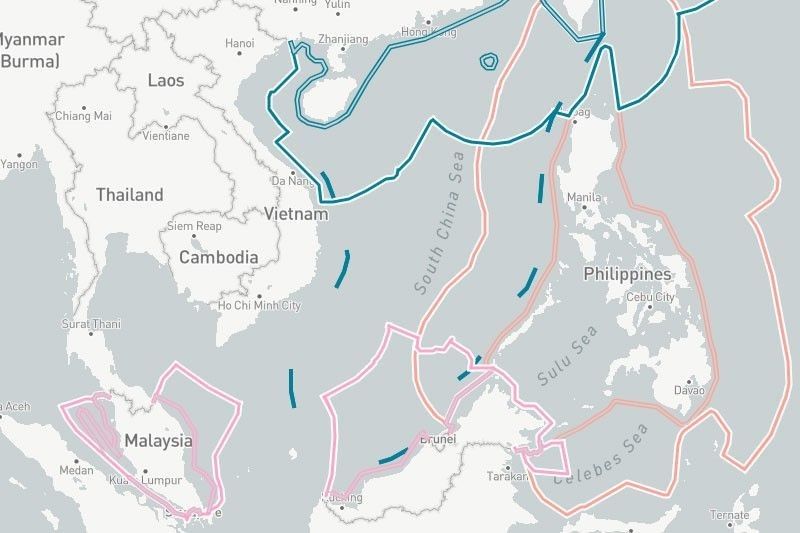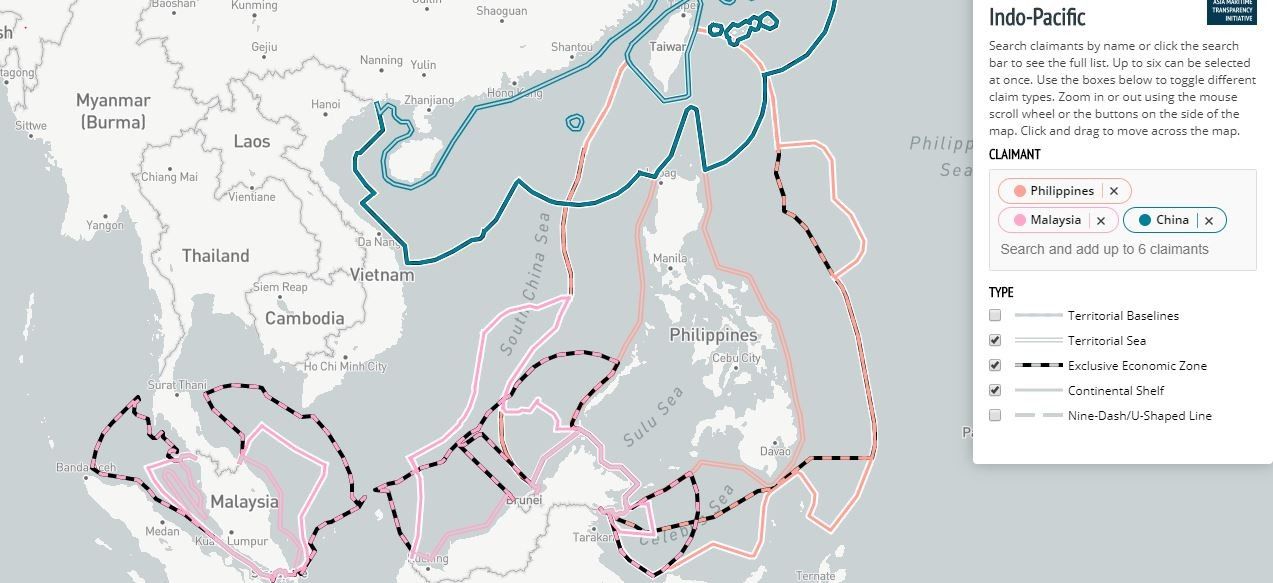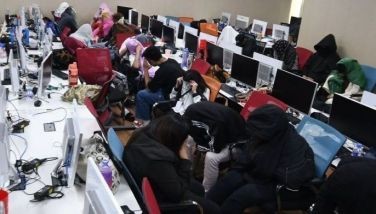Invoking arbitral award, Philippines rejects Malaysian, Chinese claims in South China Sea

MANILA, Philippines — Citing its July 2016 arbitral victory, the Philippines rejected Malaysia's submission for an extended continental shelf claim in the South China Sea, as well as China's opposition against this.
In December, Malaysia submitted a request to the United Nations Commission on the Limits of the Continental Shelf (UNCLCS) to extend its continental shelf beyond the 200-nautical mile limit.
Accusing Malaysia of infringing on China's sovereignty, sovereign rights and jurisdiction in the South China Sea, Beijing earlier asked the UNCLCS not to consider Kuala Lumpur's submission.
Malaysia's claim overlaps with the Philippines
The Philippines also rejected Malaysia's claim as it overlaps with the country's claims over the Kalayaan Island Group and portions of North Borneo.
In a note verbale dated March 6, the Philippine Mission to the UN noted that Malaysia's submission also overlaps with the country's continental shelf beyond 200 nautical miles from the baselines from which Philippine territorial sea is measured.
The Philippines, however, has yet to make an official submission to the UNCLCS requesting for an extended continental shelf.
The area also overlaps with the continental shelf beyond 200 nautical miles from the baselines from which the breadth of the territorial sea of the Republic of the Philippines is measured, and over which the Government of the Republic of the Philippines intends to make a submission at a future time. Moreover, the Malaysian submission is projected from portions of North Borneo over which the Republic of the Philippines has never relinquished its sovereignty.
Philippines invokes arbitral award
In another note verbale also dated March 6, the Philippine Mission to the UN also rejected China's rejection of Malaysia's submission.

"The Government of the Republic of the Philippines considers China's positions as inconsistent with international law, including the United Nations Convention on the Law of the Sea (UNCLOS), which comprehensively allocate maritime rights to States," the Philippines said in its note verbale.
Citing the July 2016 arbitral ruling, the Philippines pointed out that under the UNCLOS, none of the high-tide features in the Spratly Islands are capable of sustaining human habitation or economic life of their own. They also cannot generate entitlements to an exclusive economic zone or continental shelf.
The Tribunal conclusively settled the issue of histpric rights and maritime entitlements in the South China Sea. The Tribunal ruled that claims to historic rights, or other sovereign rights or jurisdiction that exceed the geographic and substantive limits of maritime entitlements under UNCLOS, are without lawful effect. It further ruled that UNCLOS "superseded any historuc rights, or other sovereign rights or jurisdiction, in excess of the limits imposed therein."
Asia Maritime Transparency Initiative director Gregory Poling said this indicates that the Philippines maintains the arbitral award as the "law of the land."
"Although it raises problematic questions about the so-called joint development talks since the arbitral award said there is no dispute over Recto Bank," Poling told Philstar.com.
Recto Bank is one of the areas being considered for the possible joint exploration of the Philippines with China.
Philippines should file own claim
Retired Supreme Court Senior Associate Justice Antonio Carpio, meanwhile, said the Philippine government should file its own claim, which would overlap with Malaysia's claim.
"DFA should do more than that. DFA should file our own extended continental shelf claim in the South China Sea," Carpio said in a text message to Philstar.com
The extended continental shelf claim would cover 150 nautical miles from the edge of the Philippines' 200-nautical mile exclusive economic zone.
Jay Batongbacal, director of the University of the Philippines Institute for Maritime Affairs and Law of the Sea, noted how the Philippines invoked the South China Sea arbitral ruling in its latest note verbale contradicting Beijing's position.
"This is unlike previous instances where the [Philippine] government kept downplaying the Award and seemed to want to avoid having to take a position," Batongbacal said in text message to Philstar.com.
Prior to a meeting with Chinese President Xi Jinping in August last year, President Rodrigo Duterte said he would invoke the South China Sea arbitral ruling with his Chinese counterpart.
Duterte previously claimed invoking the arbitral ruling, which invalidated Beijing's expansive claims in the South China Sea, would risk going to war with China.
Despite the Philippine leader's earlier pronouncements, it turned out that Duterte and Xi "agreed to disagree" over the arbitral ruling on the South China Sea, according to presidential spokesperson Salvador Panelo.
"Both of them agreed that while the variant positions of [the] two countries remain, it should not, however, be a reason for them not to talk and continue with the dialogue peacefully to resolve the conflict," Panelo said in an interview with CNN Philippines in August.
- Latest
- Trending






























